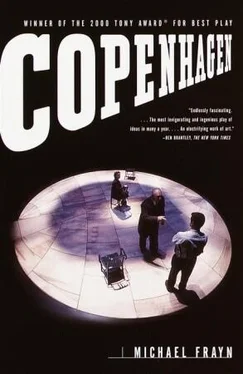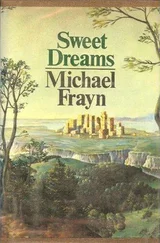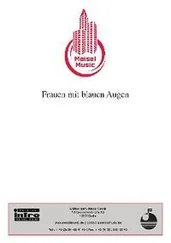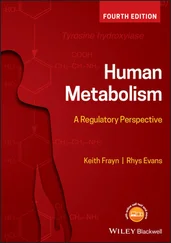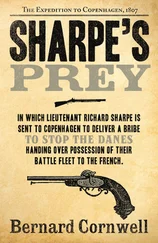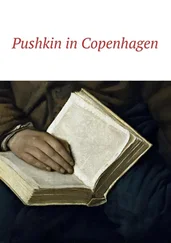Margrethe I don’t. I’m as angry as you were before! It’s so easy to make you feel conscience-stricken. Why should he transfer his burden to you? Because what does he do after his great consultation with you? He goes back to Berlin and tells the Nazis that he can produce atomic bombs!
Heisenberg But what I stress is the difficulty of separating 235.
Margrethe You tell them about plutonium.
Heisenberg I tell some of the minor officials. I have to keep people’s hopes alive!
Margrethe Otherwise they’ll send for the other one.
Heisenberg Diebner. Very possibly.
Margrethe There’s always a Diebner at hand ready to take over our crimes.
Heisenberg Diebner might manage to get a little further than me.
Bohr Diebner?
Heisenberg Might. Just possibly might.
Bohr He hasn’t a quarter of your ability!
Heisenberg Not a tenth of it. But he has ten times the eagerness to do it. It might be a very different story if it’s Diebner who puts the case at our meeting with Albert Speer, instead of me.
Margrethe The famous meeting with Speer.
Heisenberg But this is when it counts. This is the real moment of decision. It’s June 1942. Nine months after my trip to Copenhagen. All research cancelled by Hitler unless it produces immediate results — and Speer is the sole arbiter of what will qualify. Now, we’ve just got the first sign that our reactor’s going to work. Our first increase in neutrons. Not much — thirteen per cent — but it’s a start.
Bohr June 1942? You’re slightly ahead of Fermi in Chicago.
Heisenberg Only we don’t know that. But the RAF have begun terror-bombing. They’ve obliterated half of Lübeck, and the whole centre of Rostock and Cologne. We’re desperate for new weapons to strike back with. If ever there’s a moment to make our case, this is it.
Margrethe You don’t ask him for the funding to continue?
Heisenberg To continue with the reactor? Of course I do. But I ask for so little that he doesn’t take the programme seriously.
Margrethe Do you tell him the reactor will produce plutonium?
Heisenberg I don’t tell him the reactor will produce plutonium. Not Speer, no. I don’t tell him the reactor will produce plutonium.
Bohr A striking omission, I have to admit.
Heisenberg And what happens? It works! He gives us barely enough money to keep the reactor programme ticking over. And that is the end of the German atomic bomb. That is the end of it.
Margrethe You go on with the reactor, though.
Heisenberg We go on with the reactor. Of course. Because now there’s no risk of getting it running in time to produce enough plutonium for a bomb. No, we go on with the reactor all right. We work like madmen on the reactor. We have to drag it all the way across Germany, from east to west, from Berlin to Swabia, to get it away from the bombing, to keep it out of the hands of the Russians. Diebner tries to hijack it on the way. We get it away from him, and we set it up in a little village in the Swabian Jura.
Bohr This is Haigerloch?
Heisenberg There’s a natural shelter there — the village inn has a wine-cellar cut into the base of a cliff. We dig a hole in the floor for the reactor, and I keep that programme going, I keep it under my control, until the bitter end.
Bohr But, Heisenberg, with respect now, with the greatest respect, you couldn’t even keep the reactor under your control. That reactor was going to kill you.
Heisenberg It wasn’t put to the test. It never went critical.
Bohr Thank God. Hambro and Perrin examined it after the Allied troops took over. They said it had no cadmium control rods. There was nothing to absorb any excess of neutrons, to slow the reaction down when it overheated.
Heisenberg No rods, no.
Bohr You believed the reaction would be self-limiting.
Heisenberg That’s what I originally believed.
Bohr Heisenberg, the reaction would not have been self-limiting.
Heisenberg By 1945 I understood that.
Bohr So if you ever had got it to go critical, it would have melted down, and vanished into the centre of the earth!
Heisenberg Not at all. We had a lump of cadmium to hand.
Bohr A lump of cadmium? What were you proposing to do with a lump of cadmium?
Heisenberg Throw it into the water.
Bohr What water?
Heisenberg The heavy water. The moderator that the uranium was immersed in.
Bohr My dear good Heisenberg, not to criticise, but you’d all gone mad!
Heisenberg We were almost there! We had this fantastic neutron growth! We had 670 per cent growth!
Bohr You’d lost all contact with reality down in that hole!
Heisenberg Another week. Another fortnight. That’s all we needed!
Bohr It was only the arrival of the Allies that saved you!
Heisenberg We’d almost reached the critical mass! A tiny bit bigger and the chain would sustain itself indefinitely. All we need is a little more uranium. I set off with Weizsäcker to try and get our hands on Diebner’s. Another hair-raising journey all the way back across Germany. Constant air raids — no trains — we try bicycles — we never make it! We end up stuck in a little inn somewhere in the middle of nowhere, listening to the thump of bombs falling all round us. And on the radio someone playing the Beethoven G minor cello sonata …
Bohr And everything was still under your control?
Heisenberg Under my control — yes! That’s the point! Under my control!
Bohr Nothing was under anyone’s control by that time!
Heisenberg Yes, because at last we were free of all constraints! The nearer the end came the faster we could work!
Bohr You were no longer running that programme, Heisenberg. The programme was running you.
Heisenberg Two more weeks, two more blocks of uranium, and it would have been German physics that achieved the world’s first self-sustaining chain reaction.
Bohr Except that Fermi had already done it in Chicago, two years earlier.
Heisenberg We didn’t know that.
Bohr You didn’t know anything down in that cave. You were as blind as moles in a hole. Perrin said that there wasn’t even anything to protect you all from the radiation.
Heisenberg We didn’t have time to think about it.
Bohr So if it had gone critical …
Margrethe You’d all have died of radiation sickness.
Bohr My dear Heisenberg! My dear boy!
Heisenberg Yes, but by then the reactor would have been running.
Bohr I should have been there to look after you.
Heisenberg That’s all we could think of at the time. To get the reactor running, to get the reactor running.
Bohr You always needed me there to slow you down a little. Your own walking lump of cadmium.
Читать дальше
